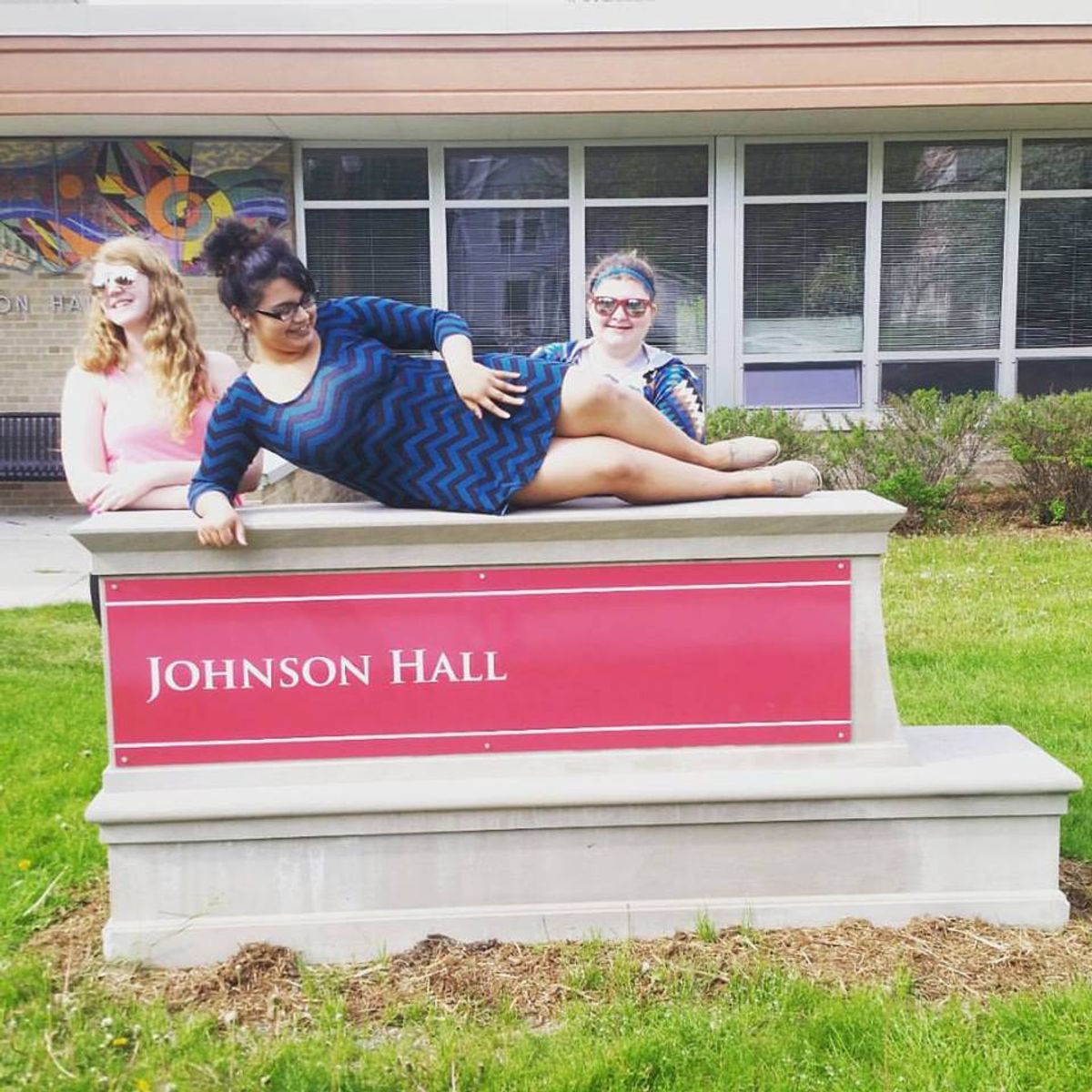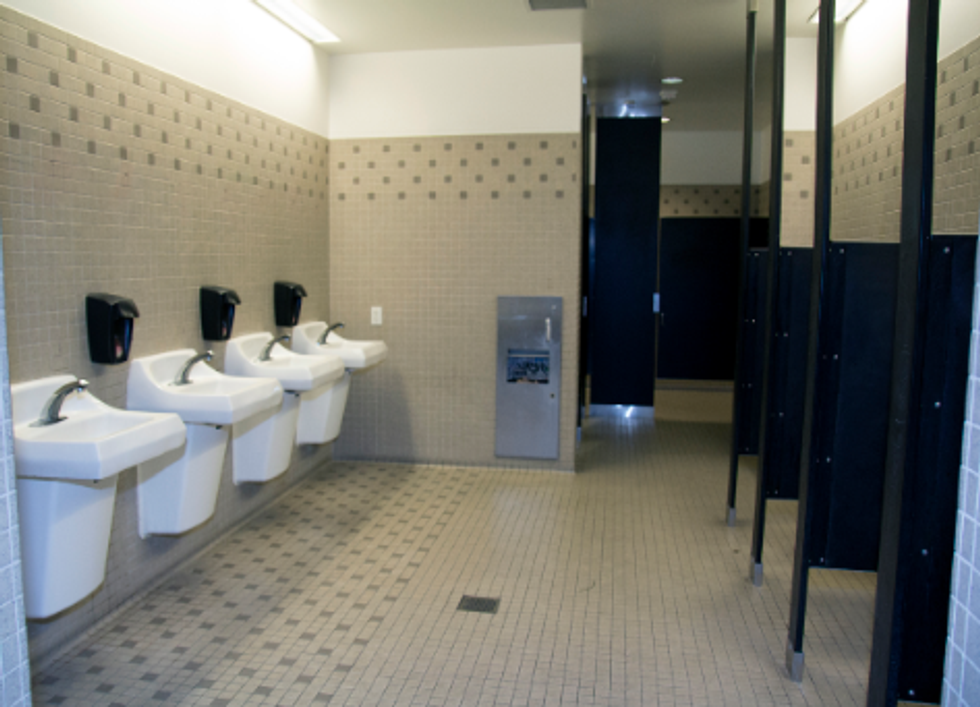At the beginning of the fall semester of 2015, I experienced something that has changed me to my core. I was sexually assaulted.
It was something I never thought could happen to me.
I always thought that I was following the rules so I should have been safe. I never left my cup unattended. I always used the buddy system if I knew I’d be going out. If I had to walk in the dark alone, I made sure I was always on the phone with my parents or a friend until I was safely indoors again. When I walked to my car in the dark, I always had my keys at the ready, both to get in my car quickly or use them as a weapon if it was needed. I always dressed how I wanted to, but if I was going to a social gathering where I knew there’d be drinking I always went with the jeans instead of the skirt. While I’ll admit that I spent most of my adult life with one person, if I was at a social gathering I would go out of my way to not flirt or lead someone on. If I was catcalled, I was friendly—but not too friendly—because I didn’t want to invite more.
I had always been so careful to follow these rules that adults had taught me since I was a child. I always thought that following these rules would keep me safe from the monster that people called “rapist.” A monster with an unfamiliar faced half covered by a hood, deep raspy breath and wielding a knife or gun.
I never in my wildest dreams thought it could be the face of someone I saw frequently. Someone that I had confided in on late nights when I was troubled. Someone that I had felt safe with. Adults had taught me that a rapist was an unknown monster, not one of my best guy friends that I trusted and loved.
So when I was raped, at first I couldn’t believe it—I could not accept that it was rape and that it happened to me by him. I wanted to try so hard to come to peace internally with what had happened to me that I was willing to place all blame on myself. I told myself that it was my fault because I must have broken one of the rules—I must have lead him on. My actions made him believe that what happened was right and OK. The more time that went on, the blame went from “You lead him on,” to “You didn’t say no,” to “You didn’t fight back so you deserved what you got.” I fell into a hole of self deprecation and that hole was being filled by blaming myself mixed with hating my body for reacting the way that it had.
It took me almost a month to come to terms with the fact that on some level, it was not entirely my fault. But then I ran into a wall; I had to explain to him why I didn’t want to have any contact with him ever again. At that point, I hadn’t been responding to text messages from him, and I had been ignoring his calls. But every time his name flashed across my screen, I would have a panic attack or would break down crying. At the time, I didn’t understand why it was happening; no one had ever told me what happened to a person after they had been attacked. Now, I understand that was the beginning sign of PTSD from the assault.
One day, he texted and I knew that I couldn’t take another day of getting messages from him. I told him that what had happened was not OK, and that it had been non-consensual. The text message that I got back still haunts me.
“But you got so wet.”
After a brief human anatomy lesson and an attempt to define consent for my rapist, I couldn’t respond anymore and was spammed with text messages telling me that I needed to help him understand why he was a rapist.
It was after all of this, months of self-loathing and having to define consent for my rapist, I finally realized that one of the reasons that my rape had occurred was because adults failed both my rapist and myself. The generation that raised us never taught us about consent or what rape was really like. And it’s not their fault because they were never taught about consent and what rape is really like.
Rape culture is so ingrained into our society that it is invisible to those who are not or have not been directly impacted by it. It makes parents genuinely think that teaching their kids to follow all those ridiculous rules will keep them safe. Because according to rape culture, rapists are monsters with unfamiliar faces and rapes happen because the survivor wasn’t proactive enough to prevent their rape. Because rape happens because a man can’t control his sexual urges. Because the survivor always has to have done something to have that happen to them. Because it isn’t rape if the person doesn’t verbally say “No,” or doesn’t fight back.
This needs to change. We need to start educating people about consent. So to start, here’s a brief synopsis:
Consent is active, not passive. Silence in and of itself cannot be interpreted as consent. Consent can be given by words or actions, as long as those words or actions create mutually understandable, clear permission regarding willingness to engage in (and the conditions of) sexual activity. Consent can be taken away at any given point during sexual activities, and at that point, all sexual activities must stop. A sexual act can become sexual assault even if the survivor does not verbally say “No.”
To learn more, please visit EROC's website or Know Your IX's website.
If you’re on Millersville University’s campus and would like to get involved, please take some time out of your day to visit Bob Wood, the Title IX Coordinator on campus. Tell him Leyna sent you and that you want to get involved and Mr. Wood will find something for you.











 Photo by
Photo by 








